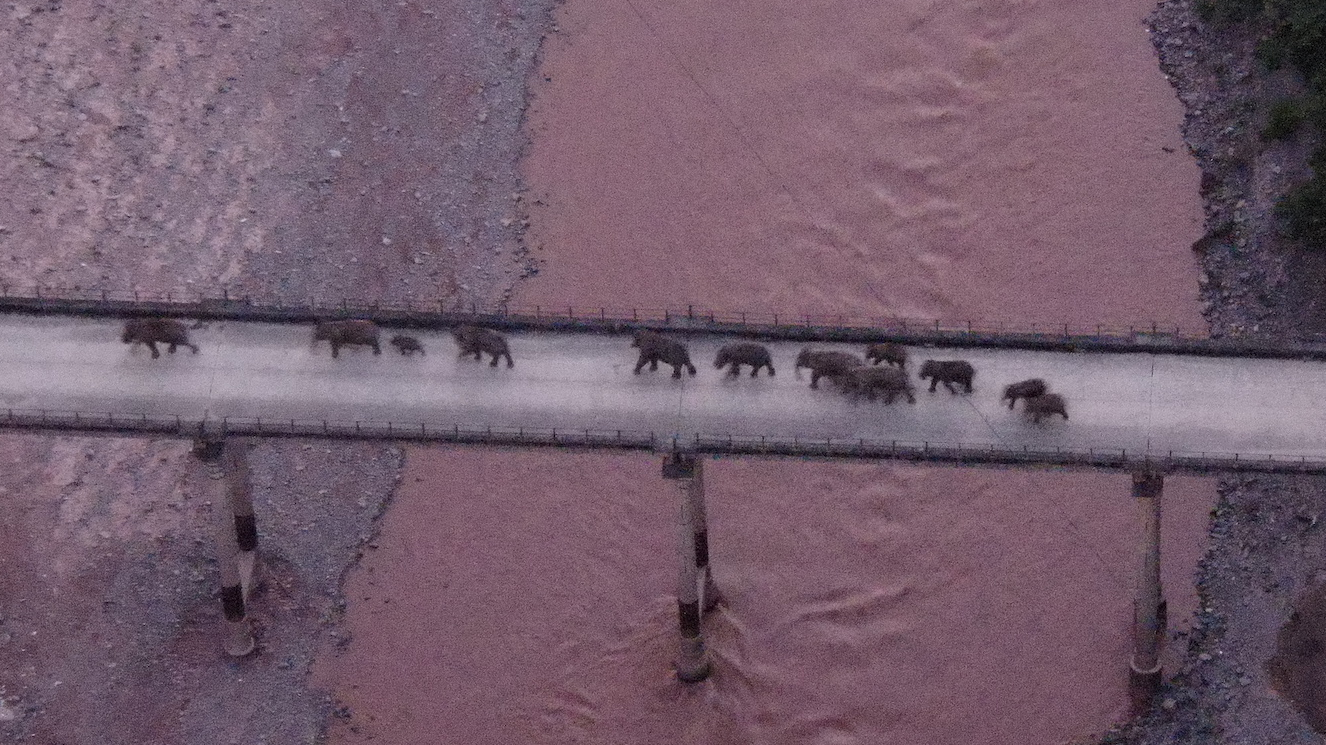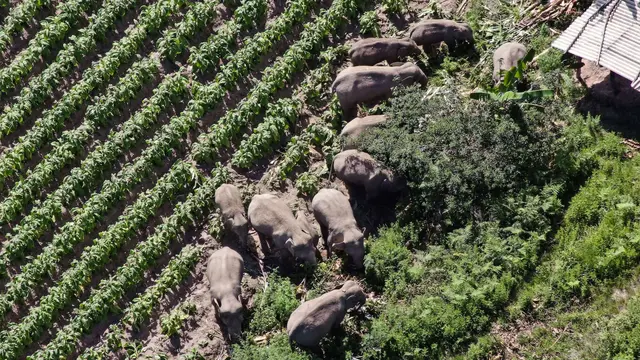
The wandering elephants crossing the Yuanjiang River in Yunnan province, China, on their way back to their traditional habitat. /TPX Images of the day
Fourteen wild elephants are heading south towards their protected habitat in southwest China's Yunnan province following a 1,300 km trek that captured the public's imagination, provincial officials have said.
Wildlife protection officials told a press briefing the elephants safely crossed a bridge over the Yuan River, returning south towards a nature reserve administered by the city of Pu'er.
READ MORE:
This could be the world's oldest art
'Code Red' for humanity on climate
An emergency committee set up to handle the wild elephants used electric fences and bait and laid artificial roads to ensure the elephants took the correct route.
Yang Yingyong, a member of the committee, told reporters the migration route was "scientifically planned."
The committee will "strive to allow the elephants to return to their habitat as soon as possible and thrive," he said.
Yunnan deployed more than 25,000 police and staff and 1,500 emergency vehicles to track and feed the elephants and guarantee public safety, said Wan Yong, head of the provincial forestry commission.
00:57

More than 150,000 people were evacuated along the migration route and more than 5 million yuan ($771,000) in insurance funds disbursed to cover property damage, he said.
A herd then consisting of 16 elephants left their home in Xishuangbanna 300 km further south in March last year and eventually settled in a protected habitat in Pu'er.
In April this year, 15 of the elephants left Pu'er and meandered more than 1,300 km (808 miles) through the cities of Yuxi and Honghe before reaching the outskirts of the provincial capital Kunming in June.
State protection efforts have enabled the wild elephant population of Xishuangbanna to double since 1978. Wan said a ban on hunting activities had also made elephants more willing to enter human communities.
Experts say natural habitats have shrunk and become fragmented due to rapid urbanization, new transportation infrastructure and the extension of commercial farming.
Shen Qingzhong, an expert with the Xishuangbanna National Nature Reserve Management Bureau, said it is likely the elephants will head north again in the future.
"The migration and spread of the Asian elephant population is inevitable," he told the briefing.
Cover picture: Handout / Yunnan Forest Brigade / AFP
Source(s): Reuters
 简体中文
简体中文

